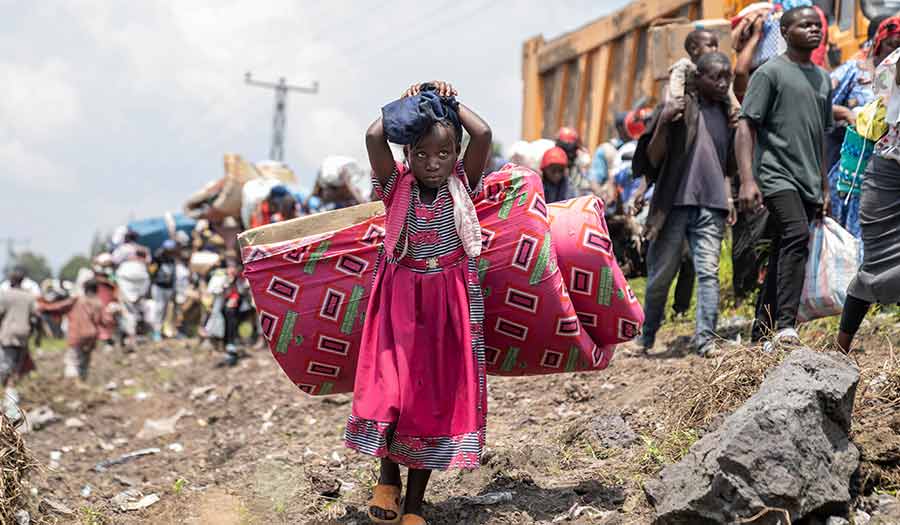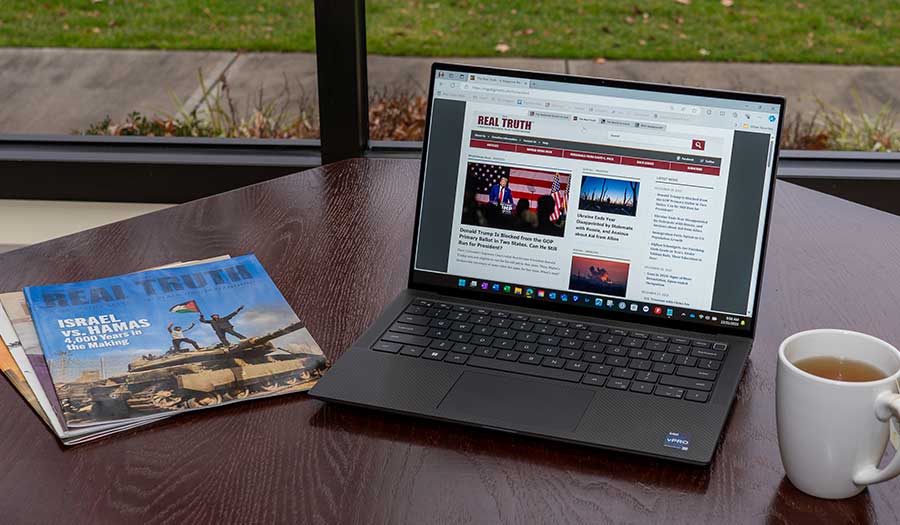 AP/Moses Sawasawa
AP/Moses Sawasawa
World News Desk
Learn the why behind the headlines.
Subscribe to the Real Truth for FREE news and analysis.
Subscribe NowCAPE TOWN, South Africa (AP) – Aid organizations fear a new humanitarian crisis in the restive eastern Congo region, where the renowned armed rebel group M23 is in the midst of a new advance that threatens to cut off a major city and leave millions of people struggling for food and medical help.
Eastern Congo has been beset by conflict for years, with M23 among more than 100 armed groups vying for a foothold in the mineral-rich area near the border with Rwanda. Some have been accused of carrying out mass killings.
There has been an upsurge in fighting in recent weeks between M23 rebels and Congo army forces, and it comes as the United Nations plans to withdraw peacekeepers from the region by the end of the year.
Tensions are also rising between Congo and Rwanda, with them blaming each other for supporting various armed groups. Congo accuses Rwanda of backing M23.
This weekend, the U.S. State Department condemned what it called the “worsening violence.” A group of aid agencies has estimated that 1 million people have already been displaced by fighting in the last three months.
Who Are M23?
The March 23 Movement, or M23, is a rebel military group mainly made up of ethnic Tutsis that broke away from the Congolese army just over a decade ago. They staged a large offensive in 2012 and took over the provincial capital of Goma near the border with Rwanda, the same city they are threatening again.
The conflict has regional complications, with neighboring Rwanda also accused by the U.S. and UN experts of giving military aid to M23. Rwanda denies that but effectively admitted on Monday that it has troops and missile systems in eastern Congo. Rwanda said that is to safeguard its own security because of what it claims is a buildup of Congo army forces near the border. Rwanda has rejected calls from the U.S. to withdraw.
There are also ties to the Rwandan genocide of 30 years ago, with M23 and Rwanda saying separately that they are fighting a threat from a Congolese rebel group that is connected to the Congo army and partly made up of ethnic Hutus who were perpetrators of the 1994 genocide.
Congo-Rwanda Tensions
Relations between Congo and its eastern neighbor have been fraught for decades. Hundreds of thousands of Rwandan Hutu refugees had fled to Congo, then Zaire, in the aftermath of the 1994 Rwandan genocide. Among them were soldiers and militiamen responsible for the slaughter of 800,000 minority Tutsis and moderate Hutus.
Two years after the genocide, Rwanda and Uganda invaded eastern Congo to try and root out what remained of those genocide perpetrators, which led to the toppling of then-Congo President Mobutu Sese Seko.
Tensions between Congo and Rwanda escalated in 2021 with the resurgence of M23 attacks on Congolese soldiers after nearly a decade of relative inactivity due to a 2013 peace deal. The presence of so many armed groups is believed to be connected to illegal mining, with eastern Congo rich in gold and other minerals.
What Has Happened in Recent Weeks?
M23 launched new attacks late last year and has ramped them up in recent weeks. The group is now threatening to take the key town of Sake, about 16 miles west of Goma. That could cause food and aid supplies to be cut off from Goma, which had a population of around 600,000 a few years ago, but now holds more than 2 million people, according to aid agencies, as people flee violence in surrounding towns and villages.
The advance of rebels on Sake “poses an imminent threat to the entire aid system” in eastern Congo, the Norwegian Refugee Council said. It said 135,000 people were displaced in just five days in early February.
The violence has also sparked protests from the capital, Kinshasa, to Goma, with angry demonstrators saying the international community is not doing enough to push back against M23 and not taking a hard enough stance against Rwanda.
What Is at Stake?
The new fighting could lead to an escalation of regional tensions and involve more countries. As the UN winds down its 25-year peacekeeping mission in eastern Congo, a multi-national force under the southern African regional bloc is set to step in. That force will include soldiers from regional power South Africa, Malawi and Tanzania. They will help the Congo army forces, but it might put them in direct conflict with Rwanda.
There is also the humanitarian cost. The International NGO Forum in Congo, a group of non-governmental organizations working in the region, said the escalation in fighting has involved artillery attacks on civilian settlements, causing a heavy toll and forcing many health and aid workers to withdraw.
Eastern Congo already had one of the world’s worst humanitarian crises, with nearly 6 million people previously displaced because of conflict, according to the UN Refugee Agency.
There are concerns a new disaster could largely go unnoticed because of the attention on the war in Gaza and Russia’s invasion of Ukraine.
- Real Truth Magazine Articles
- ANALYSIS
 Top 10 Real Truth Articles of 2023
Top 10 Real Truth Articles of 2023
More on Related Topics:
- In a Nigerian Village, Extremists Issued a Call to Prayer and Then Slaughtered Those Who Turned Up
- Sudanese Paramilitary Force Abducting Children in Darfur, Witnesses Say
- Nigeria’s Northeast Faces Worst Hunger in a Decade as Aid Cuts Hit Region, UN Says
- Uganda Shuts Down Internet Ahead of Election, Orders Rights Groups to Halt Work
- Sudan’s Top General Rejects U.S.-Led Ceasefire Proposal, Calling It ‘The Worst Yet’


